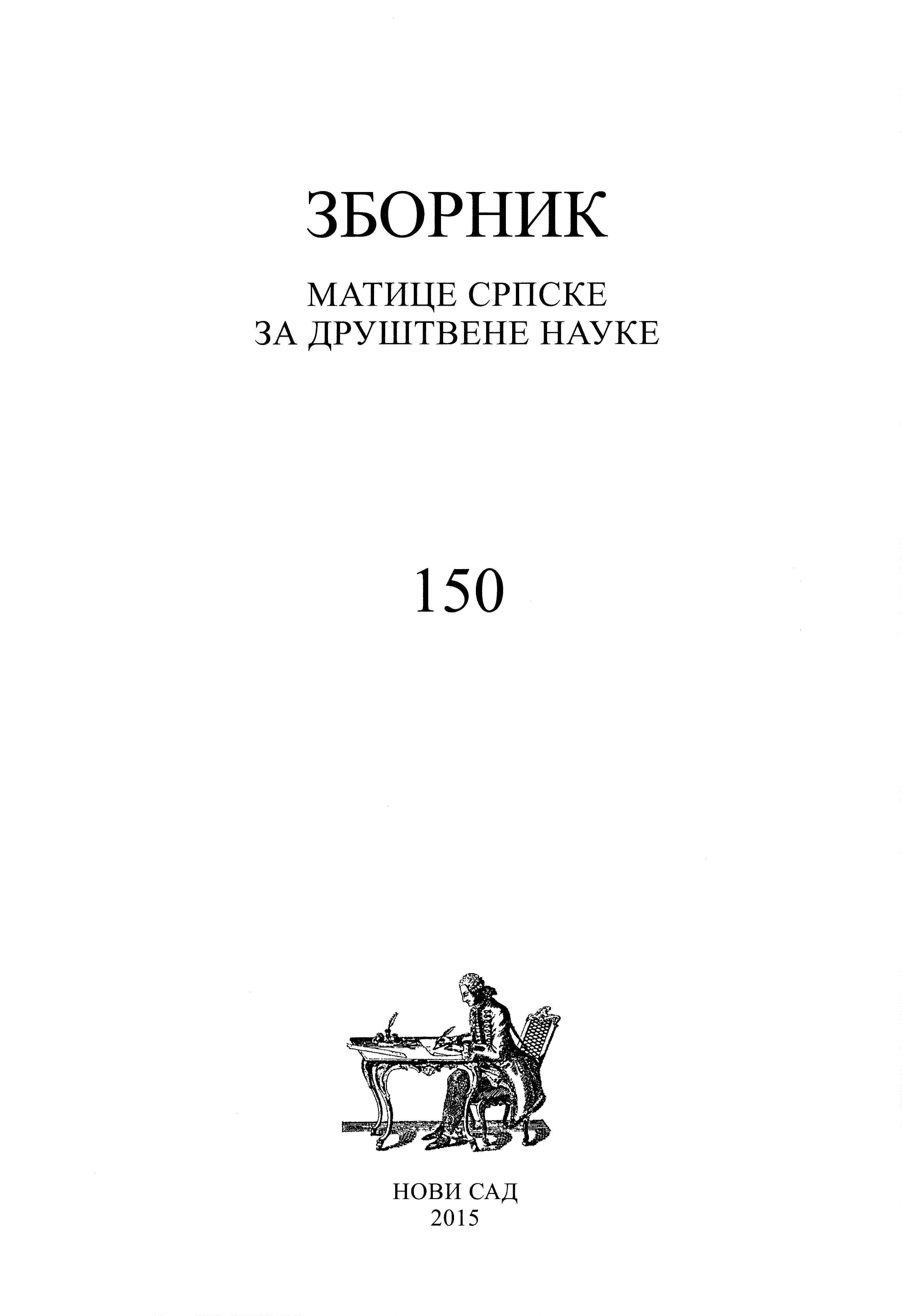Велики рат, видовданска етика, памћење
The Great War, Ethics of Vidovdan, Memory
Author(s): Bogoljub ŠijakovićSubject(s): Cultural history, Ethics / Practical Philosophy, Pre-WW I & WW I (1900 -1919)
Published by: Матица српска
Keywords: Contemporaneity; expansionism; Great War; spiritual situation; Ideas of 1914; intellectuals; Habsburg Monarchy; Serbia; preventive war; war responsibility; Mlada Bosna (Young Bosnia); the ethics of Vi
Summary/Abstract: After a characterization of contemporaneity (dominance of the financial sector and high technology, politicization of economy, ideological use of culture and thought control) and a brief analysis of expansionism (political, economic, cultural) on the eve of the Great War, the author gives a more detailed description of the spiritual situation in the wake of the Great War: in philosophy, literature, and art, as well as the national political programmatic texts and war propaganda publications of German intellectuals of the time. The continuity of the Austro-Hungarian colonial policy towards the Balkans and Serbia culminated in instigation of a preventive war against Serbia by the elites in Berlin and Vienna, which is important for the question of responsibility for the war, with concrete war aims which reflected in the causes of the war. These war elites wanted to declare the assassination in Sarajevo as the cause of war, which in fact was a political assassination and tyrannicide. The liberation movement of democratic youth Mlada Bosna (Young Bosnia) needs to be viewed both in the European context and inspired by the Serbian tradition of Kosovo cult and the ethics of Vidovdan (St Vitus Day) speaking about the sacrifice as sublimation of history and about honorable suffering as element of identity. Historical memory suggests that historical responsibility is transgenerational. The epic proportions of Serbian suffering in the Great War have additionally incited the idea of the Temple of St Vitus Day (Vidovdanski Hram) conceived by Ivan Meštrović. The bases of this idea were shaken by Miloš Crnjanski in his Lyrics of Ithaca where he succeeded to bring back to Vidovdan (St Vitus Day) its inexhaustible national power of validity. Because of enormous Serbian military and civilian casualties in recent history, the establishing of a Victims of War Memorial today would have identity, existential, ethical and ontological significance for the Serbian people.
Journal: Зборник Матице српске за друштвене науке
- Issue Year: 2015
- Issue No: 150
- Page Range: 1-42
- Page Count: 42
- Language: Serbian

